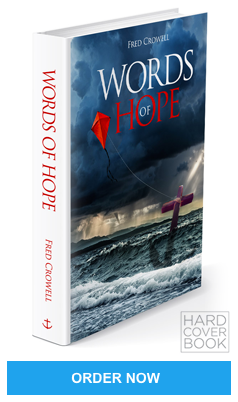Words of Hope: Learning to Forgive
Dad and I often talked about bitterness and the drive to live in fracture with others. It’s incredible how generational resentment perpetuates—mother cut off from daughter, father from son. Forgiveness is a challenging and noble task. It brings health into generational patterns of distance or fracture. How many families are divided, members not speaking to one another, frustrated, embittered? Toxic families cannot talk about painful situations without making the situation worse. Families learn to “co-exist” together, gingerly avoiding any possible conversations that could evoke conflict or simply saying nothing in person only to vent to others after being together. Sometimes, families cut one another out altogether.
Forgiveness is a process that allows us to remember, speak about, or navigate painful situations and become healed rather than create more significant toxicity. The process of forgiveness helps us elevate and leave trouble, anger, and chaos behind as we begin to let go of the need to blame others, be victims, seethe in silence, or return violence for violence. Forgiveness gives us the courage to experience our grief and process harmful situations with wholeness instead of fracture.
Dad stepped into difficult conversations with confidence and wisdom. He knew how to make toxic conversations healthier. How did he do this? He did it by the will to ask forgiveness first. Being first is so hard. It requires so much courage. Dad often would start, “I had a rude tone in our discussion. What was that like when I responded rudely? Would you forgive me for my rude tone and how it made you feel angry and frustrated?” His courage to step into health immediately brought health to the conversation.
Dad would ask couples or families he worked with toward relational health to count how often they initiated asking forgiveness, not in a victim way but in a mutually powerful and healthy way. The frequency of asking for forgiveness was an excellent barometer of the health or toxicity of the relationship.
Whoever conceals their sins does not prosper, but the one who confesses and renounces them finds mercy. – Proverbs 28:13








